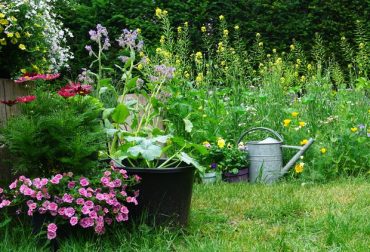

Everyone should practice pest control. Pests, termites, and rodents can transmit dangerous infections. Flies can contaminate your food; worst of all, pests like termites and raccoons sometimes necessitate harsh measures due to their quick reproduction rates
You can also use various chemicals and pesticides to manage and control pests. The use of organic pest management has evolved significantly. When you choose a pest control company in Melbourne, Florida, they’ll perform a complete home assessment and propose natural pest control solutions tailored to your property’s vulnerable spots in Melbourne, FL.
Gardening can be rewarding and is an enjoyable task. Dealing with pests and diseases is crucial to maintaining your garden’s health and aesthetic appeal.
You can use various techniques to manage pests in your garden, but not all are equally successful. Here are the top strategies for home gardeners to control pests and diseases.
Chemical pest controls are the best method of managing pests in your yard. Insecticidal sprays or soaps manage whiteflies, aphids, roaches, and ants from your garden. You must follow the instructions while using chemical controls and take safety measures to safeguard the environment and yourself.
Cultural control is one of the most popular and efficient ways to control pests and diseases in your yard. You must use crop rotation, companion planting, perimeter treatment, and mulching to out pests in an unfavorable habitat.
Crop rotation prevents widespread issues like whitefly infestations and root rot. You can break the life cycles of pests and diseases and make it difficult for them to spread by cultivating various crops in different locations of your garden.
Mulching also helps in the management of pest control. Establish a barrier between plants and soil that pests cannot cross.
You can also protect your home and garden with effective pest control strategies such as companion planting.
These are living creatures designed to manage diseases and pests in gardens. Examples of biological controllers are ladybugs (they eat aphids) and Bacillus thuringiensis (a bacteria that kills caterpillars).
Using biological controls is a fantastic method to control diseases and pests without chemicals. Additionally, many biological controls are tailored to a particular pest or disease, meaning they won’t damage any beneficial insects or other garden wildlife.
You can take physical measures to keep pests out of your garden by invisible forcefields and barriers so your garden can be safe from invasion, or if they have entered already, they can be trapped easily. For instance, insecticidal soap or sticky traps can be used to control common pests like beetles and aphids.
Physical restrictions can also help in stopping the spread of infections. For instance, you can grow plants that can resist the disease and reduce the chance of infection. Furthermore, keeping your yard clean and clutter-free can also help limit the spread of diseases.
Effective pest control is necessary for both environmental and human health protection. Given how destructive some insect species are for agricultural production and residential properties, damage from pests can also impact the economy.
We have discussed a few effective methods of pest control in your garden. You can follow these preventive measures to control and manage pests in your yard to stop infections and diseases from spreading. You can prevent the spread of pests in your yard by throwing trash and leftover food in tightly packed trash cans.
Furthermore, you should wash and dry the dishes after using them and keep the floors, stoves, and cabinets clean to prevent insects and pests from entering.
